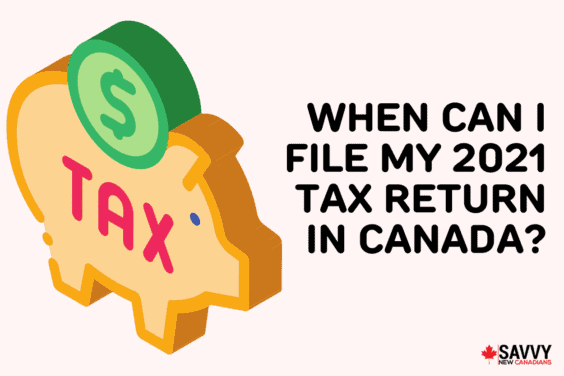Manitoba’s minimum wage increased to $15.30 per hour on October 1, 2023.
A minimum wage is the lowest hourly wage rate an employer can legally pay an employee.
Individual provinces and territories have legislation that sets out the minimum pay rate in each jurisdiction. Federal workers and establishments regulated by federal labour standards are also subject to a federal minimum wage.
Manitoba Minimum Wage History
Manitoba’s minimum wage was adjusted on October 1, 2023, to reflect an increase in the inflation rate (Consumer Price Index) and purchasing power challenges faced by workers.
The minimum was increased from $14.15 to $15.30, and the $1.15 increase leaves Manitoba’s minimum wage as one of the mid-tier pay rates in Canada.
The history of Manitoba’s minimum wage over the last 10 years is as follows:
- October 1, 2023: $15.30
- April 1, 2023: $14.15
- October 1, 2022: $13.50
- October 1, 2021: $11.95
- October 1, 2020: $11.90
- October 1, 2019: $11.65
- October 1, 2018: $11.35
- October 1, 2017: $11.15
- October 1, 2015: $11.00
- October 1, 2014: $10.70
- October 1, 2013: $10.45
Manitoba Minimum Wage For Students
The minimum wage for students in Manitoba is $15.30 (the same rate as everyone else).
This is unlike Ontario or Alberta, where the wage rate for students under 18 years of age is lower than the general populace.
The minimum age to start working in Manitoba is 13 years.
Kids aged 13-15 years old must complete a “Young Workers Readiness Certificate Course” before they can start working.
This course requirement is waived if they are self-employed (e.g. babysitting or delivering flyers), volunteering for a charitable organization, or working at a farm owned by a family member.
Young people under 18 are not allowed to work in some industries/jobs, including forestry, sawmills, underground mines, etc.
There are further restrictions for those aged 13-15 years.
Manitoba Minimum Wage Exceptions and Rules
Construction Sector: Employees working in the industrial, commercial, and institutional construction sectors have their own minimum wage rate. A separate wage schedule also applies to those working in heavy construction.
3-Hour Rule: An employee scheduled to work a shift longer than 3 hours must be paid for at least 3 hours if they are sent home earlier.
Wage Deductions: Deductions for room and meals cannot reduce an employee’s earnings below the minimum wage in each pay period by more than $1 per meal and $7 per week for lodging.
The cost of a uniform, stolen or broken tools/equipment, personal safety equipment, or cash/inventory shortages cannot be deducted from an employee’s wages.
Independent Contractors: Manitoba’s employment standards do not apply to independent contractors.
Residential Caregivers: Residential caregivers must be for 12 hours each day at a minimum (8 hours x regular wages plus 4 hours x overtime rate).
Hours of Rest: Domestic workers and residential caregivers must get 36 consecutive hours of rest each week.
Get more details about Manitoba’s Employment Standards.
Minimum Wage Tax Rate in Manitoba
The personal income tax rate you pay in Manitoba varies depending on your tax bracket as follows:
| Tax Bracket | Manitoba Tax Rate |
| Up to $36,842 | 10.80% |
| $36,842.01 to $79,625 | 12.75% |
| $79,625.01+ | 17.40% |
Manitoba has a basic personal amount of $10,855 for 2023, and you can claim this non-refundable tax credit.
In addition to provincial taxes, you also pay federal taxes where applicable, as follows:
| Tax Bracket | Federal Tax Rate |
| Up to $53,359 | 15% |
| $53,359.01 – $106,717 | 20.50% |
| $106,717.01 – $165,430 | 26% |
| $165,430.01 – $235,675 | 29% |
| $235,675+ | 33% |
The federal basic personal amount in 2023 is $15,000. This means you don’t pay federal taxes if your annual income is $15,000 or less.
There are several Manitoba personal tax credits that may lower or eliminate your tax burden at the end of the year.
Other deductions that lower your taxable income include CPP and RRSP contributions.
Learn more about Manitoba tax rates.
Manitoba Minimum Wage Increase
Increases in Manitoba’s minimum wage are tied to the Consumer Price Index (CPI).
As per Statistics Canada:
The Consumer Price Index (CPI) represents changes in prices as experienced by Canadian consumers. It measures price change by comparing, through time, the cost of a fixed basket of goods and services.
Simply put, CPI measures increases in the cost of living for the average consumer.
Following the high inflation seen in 2022, amendments to the Employment Standards Code were made to allow minimum wage increases above the inflation rate.
The next wage increase is expected to occur in October 2024.
Related:



